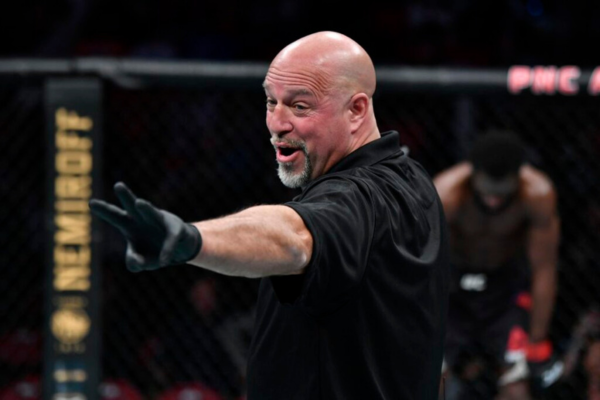The importance of referees and judges in combat sports


When the fight starts, all the attention goes to the fighters. It makes sense. They put in the hard work, show their skills, determination and fighter’s heart. But behind every fair victory and safe match is an often overlooked team: the referee and judges. They are the invisible forces that make sure everything goes according to the rules.
Why martial arts cannot exist without a referee
In the ring or cage, it’s all about strength, technique, and strategy—but without a referee? Fights would quickly derail. The referee is not just a neutral spectator; he or she is the guardian of safety, fairness, and respect. Without this central figure, no fight would be safe.
A referee intervenes when necessary, stops the fight in dangerous situations and enforces the rules of the sport. Think of clinches that go on too long, illegal techniques , or when a fighter is no longer able to defend himself. The referee literally stands between you and possible injury, and therefore deserves as much respect as the fighters themselves.
How many referees and judges are there per fight?
In professional MMA and kickboxing matches you often see it: one referee in the ring or cage, and three judges on the sidelines. Each with their own responsibility, but all crucial for a fair fight. The referee leads the fight, while the judges score based on technique, dominance, control and effectiveness.
In some disciplines, such as amateur boxing, there are even five judges. They provide a broad and objective assessment. At professional events, timekeepers and a supervisor may also be present. A complete team, all in the service of a safe and fair fight.
What exactly does a referee do during a fight?
The referee not only judges what is happening, but also anticipates what could happen. He constantly observes both fighters: who is controlling the fight? Who is in danger? Who is breaking the rules? By acting quickly and decisively, the referee prevents the match from getting out of hand .
In addition, the referee is responsible for starting, pausing and ending the fight. He communicates clearly with the fighters through verbal commands and hand gestures. Sometimes he has to decide within a fraction of a second and that carries a lot of responsibility.
What does a judge do and how do they score a fight?
Judges sit near the ring and keep a close eye on everything. They award points per round, often based on the 10-9 system: the winner of the round gets 10 points, the other 9 or less. Criteria include effective punches and kicks, ground control , octagon control and aggression.
Although the judges do not intervene in the fight itself, they do decide who the winner is when a decision is made. And that is no easy task, a wrong score can have major consequences for a fighter's career. That is why judges are trained to judge objectively and consistently, under great pressure.
What are the rules towards the referee and judges as a fighter?
As a fighter, you should always treat the referee and judges with respect. During the fight, protests, shouting or physical contact with officials are strictly prohibited. The referee has the final say, even if you disagree with his decision.
Afterwards you can of course give your opinion, but politely and through the right channels. Referees and jury members are supervised by sports associations and committees, who can intervene if mistakes have been made. But as a fighter: focus on your performance, and leave the judgment to the officials.
Common misconceptions about referees and judges
"The referee was in the way" or "the jury favored the opponent" you hear it sometimes after a lost fight. But in most cases these are misunderstandings. Referees follow strict guidelines and train continuously to remain as objective as possible.
Judges sit at different corners of the ring, giving them a unique perspective. So they may have a different impression of a round than the fans at home. But that’s what makes the system fair: multiple perspectives create balance and consensus.
The mental game: Respect for the role of the officials

Good fighters know that the mental game is just as important as the physical fight. And that includes respect for the referee and jury. When you stand in the ring with confidence and respect, you radiate professionalism. That is not only appreciated by officials, but also by the audience and your opponent.
Also, if you understand how judges score, you can play smart. Think about showing clear dominance, and consciously ending rounds with a strong final moment. By knowing the rules and respecting the officials, you give yourself a mental advantage.
Join the Fightstyle Family
At Fightstyle , martial arts is about more than just winning. It’s about discipline, respect and development – physically and mentally. That’s why we honor not only the fighters in the ring, but also the people who make it possible: the referees, judges and officials.
Want to learn more about the world of martial arts, from techniques to rules and equipment? Check out our blogs and discover how you can grow as a fighter: To all martial arts blogs
Have you ever had a moment where a referee or judge made a decisive impact on a fight – positive or negative? Let us know in the comments!
 Nederlands
Nederlands English
English Deutsch
Deutsch Français
Français


Hoe leer je als beginnende vechter beter omgaan met beslissingen van de scheids of jury, vooral als je het er niet mee eens bent?
Leave a comment